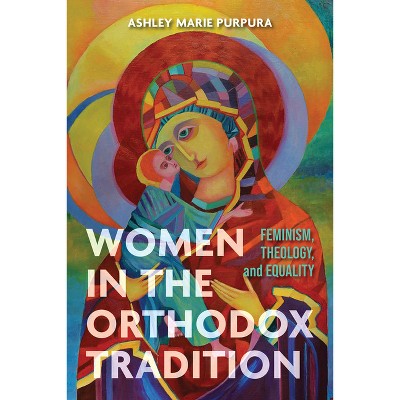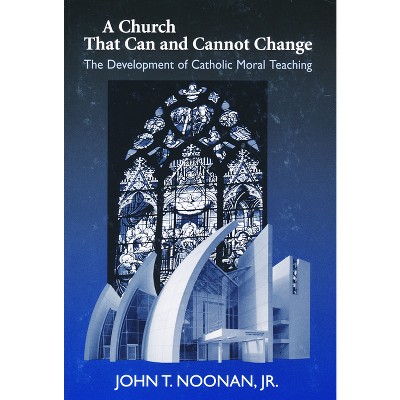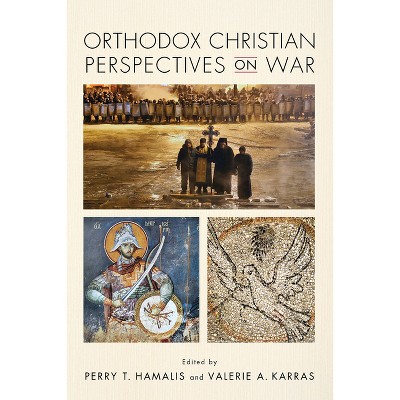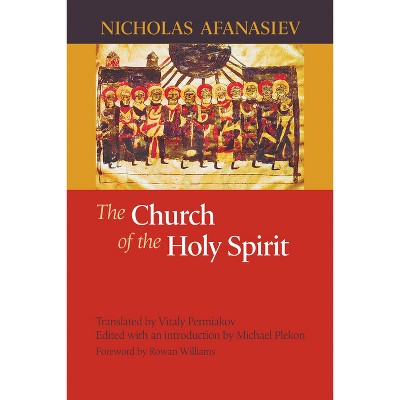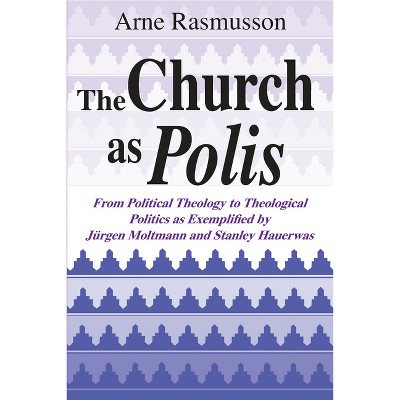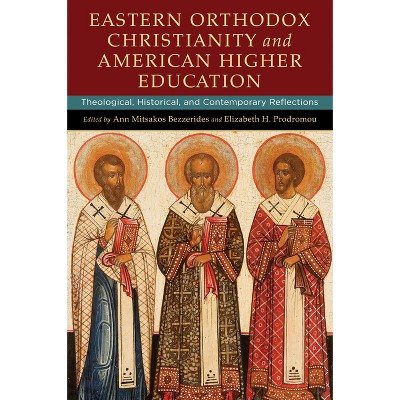Sponsored

Ecclesial Boundaries and National Identity in the Orthodox Church - by Tamara Grdzelidze (Hardcover)
In Stock
Sponsored
About this item
Highlights
- Grdzelidze's study evaluates the present state of ecclesiology in the Orthodox Church, focusing on the history of autocephaly and its relationship with the rise of religious nationalism.To date, the Orthodox Church has not sufficiently addressed the pressing problem of religious nationalism.
- About the Author: Tamara Grdzelidze is a professor of religious studies at Ilia State University in Tbilisi and former ambassador of Georgia to the Holy See.
- 276 Pages
- Religion + Beliefs, Christianity
Description
Book Synopsis
Grdzelidze's study evaluates the present state of ecclesiology in the Orthodox Church, focusing on the history of autocephaly and its relationship with the rise of religious nationalism.
To date, the Orthodox Church has not sufficiently addressed the pressing problem of religious nationalism. Tamara Grdzelidze's Ecclesial Boundaries and National Identity in the Orthodox Church fills this lacuna, offering a solution to the ecclesiological problems posed by the rise of group-related sentiment in Orthodox communities.
Grdzelidze's monograph begins with an examination of the history of autocephaly and synodality in the Orthodox Church. As she explains, the political autonomy of local churches in the Eastern Roman Empire, which was later transformed into autocephaly, instinctively carried the kernel of group-related sentiments, whether national or ethnic. Over time, such sentiments have given rise to religious nationalism, which has further resulted in the inability of autocephalous churches to disengage from their national political involvements. Consequently, Orthodox Churches are unable to conduct a conversation on the hermeneutics of authority.
After sketching this historical background, Grdzelidze offers a solution to this ecclesiological problem, proposing a eucharistic hermeneutics by which the concepts of autocephaly and synodality might be preserved from misappropriation by religious nationalists. This proposal is centered on the principle that the Church represents the Body of Christ and thus embraces the whole people of God and the whole of God's creation through the sacramental life. Ultimately, this eucharistic mode of visioning the Church furnishes a solution to the crisis of borders and boundaries in the Orthodox Church.
Review Quotes
"The present crisis in Eastern Europe has highlighted the deep problems around the relation of Orthodox Christianity to state power and national mythology. In this wonderfully learned and wide-ranging book, Tamara Grdzelidze brings together historical, sociological, and theological reflections to argue that the connections between Orthodoxy and national identity are far more diverse and fluid than many imagine, and that it is time for some serious rethinking of conventional attitudes--and even canonical structures--in the Orthodox world. A vital book for understanding the current challenges in the Eastern Christian world." --Rowan Williams, 104th Archbishop of Canterbury
"This book does not speak simply to an Orthodox audience or to ecclesiological issues. Engagement with this concept of autocephaly is crucial to understanding the role of religion in the politics of Russia and Eastern Europe." --Aristotle Papanikolaou, co-editor of Fundamentalism or Tradition
"This book is a precious exercise in building a bridge between different areas of global Christianity and even different areas within the Orthodox Churches." --Massimo Faggioli, author of The Church in a Change of Era
About the Author
Tamara Grdzelidze is a professor of religious studies at Ilia State University in Tbilisi and former ambassador of Georgia to the Holy See. She is the author and translator of Georgian Monks on Mount Athos: Two Eleventh-Century Lives of the Hegoumenoi of Iviron.
